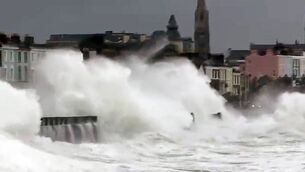Nuclear cargo docks in UK
Two ships carrying radioactive material back to Britain from Japan were today expected to dock in the UK at a port off the Irish Sea.
Freighters The Pacific Pintail and Pacific Teal, which are transporting rejected plutonium fuel, were completing the final leg of an 18,000-mile journey across the globe which began when they left Japan in July.













